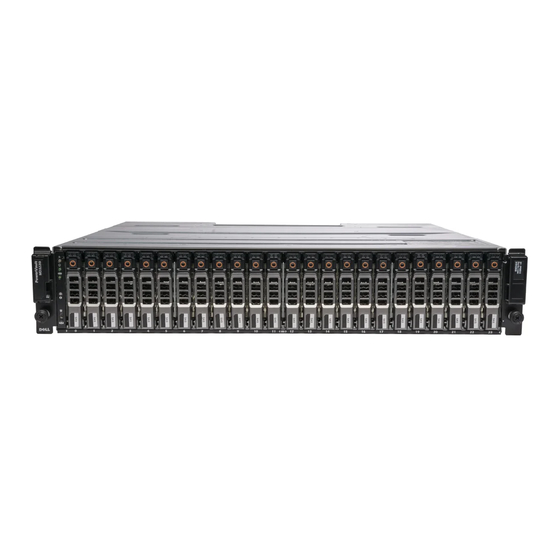DELL PowerVault MD3200i/MD3220i Technical Guide Book
Configuration Guidelines
General Configuration Rules
The MD3200i and MD3220i's extensive configuration flexibility enables customized performance tuning,
maximum capacity utilization and the highest data protection to support application servers with vastly
different requirements. A single storage array can concurrently support multiple RAID levels (0, 1, 5,
10 and 6), multiple drive technologies (SSD, SAS and near-line SAS), multiple and various disk group
sizes, and one or more virtual disks per disk group.
Below are general configuration rules for MD3200i series of arrays.
•
Up to 8 direct attached servers with single I/O paths to a dual controller storage array
•
Up to 4 direct attached servers with redundant I/O paths to a dual controller storage array
•
Up to 32 physical hosts can be supported on a single storage system (includes both single and
dual controller models)
•
Up to 96 total drives consisting of SSD, SAS and/or near-line SAS drives per storage system
•
SSD drives are limited to a single shelf (12 drives for a MD3200i or 24 drives for a MD3220i)
•
MD1200 and/or MD1220 storage enclosures can be add to a MD3200i or MD3220i storage array
for expansion up to 96 total hard drives
•
Up to 30 hard disk drives per disk group in a RAID 5 and RAID 6
•
Up to 96 hard disk drives per disk group in a RAID1/10
•
Each disk group can be configured as RAID level 0, 1, 5, 10 or 6.
•
Disk groups with different RAID levels can coexist in a single storage system.
•
Disk groups are comprised of either SSD or SAS drives. A given disk group cannot have both SSD
and SAS drives.
•
Up to 256 virtual disks (LUNs) per storage array
•
Each virtual disk can support 8 snapshots, with a maximum of 128 snapshots per storage array.
36

